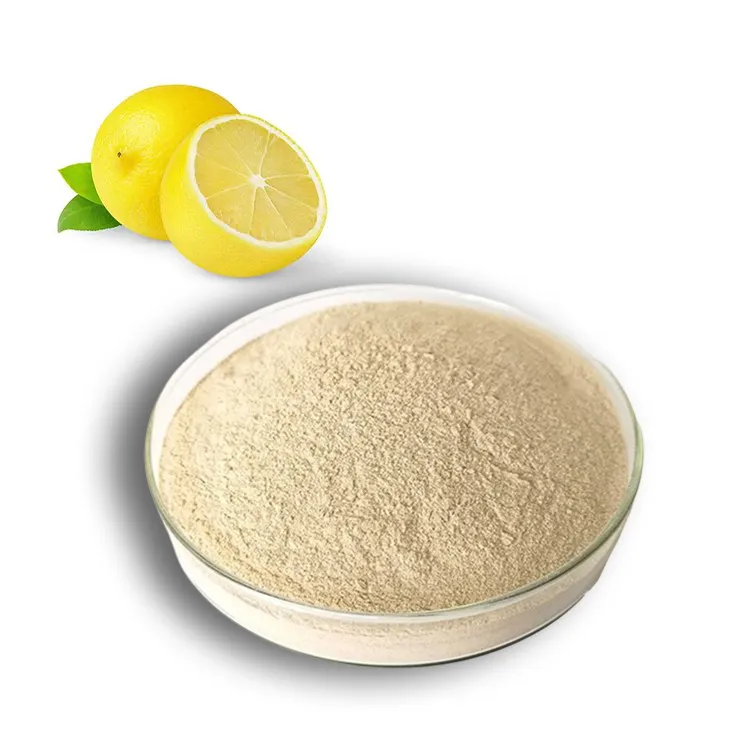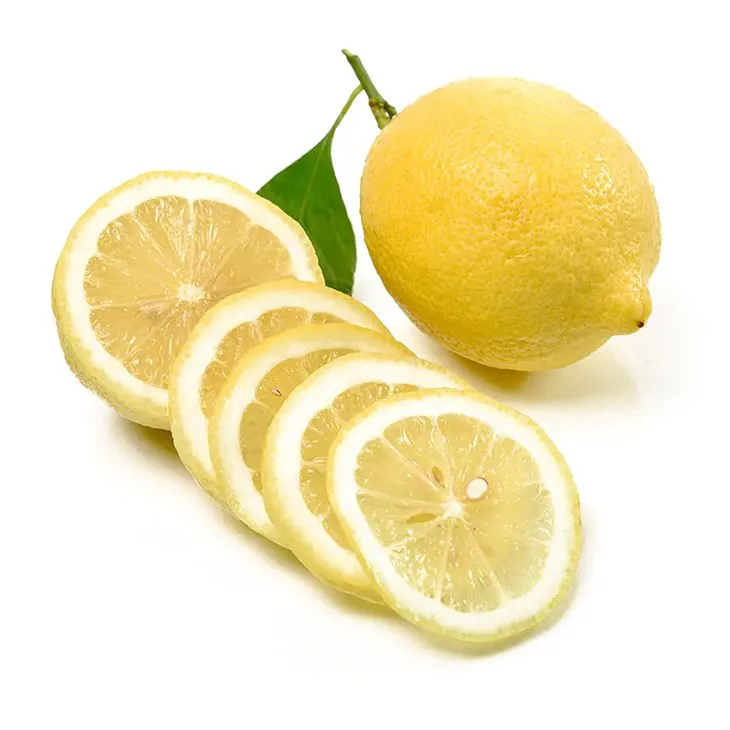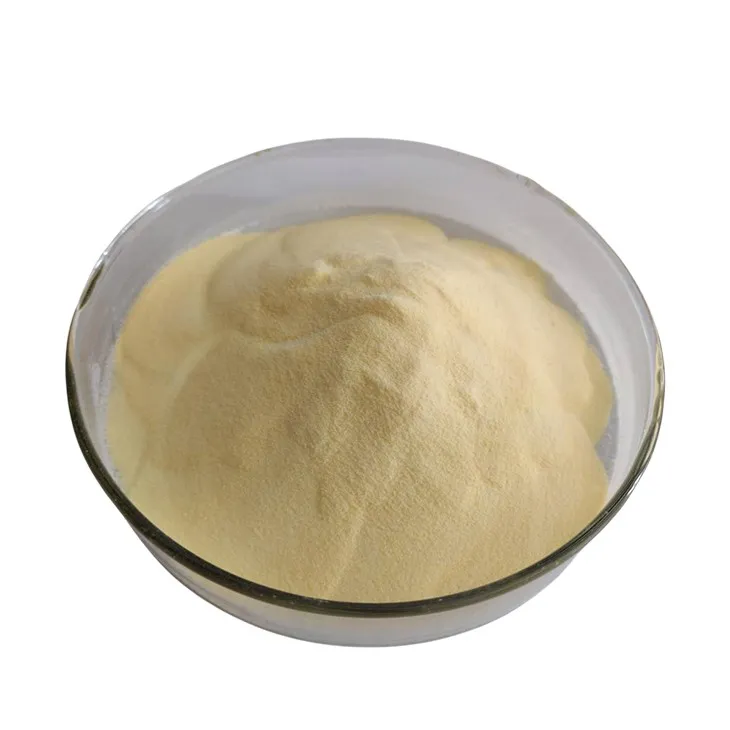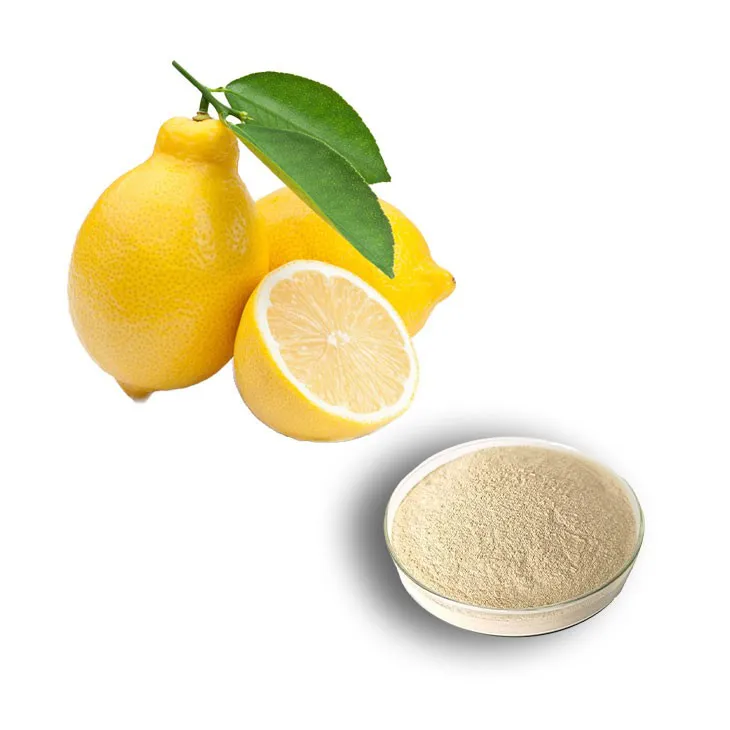- 0086-571-85302990
- sales@greenskybio.com
Lemon extract can reduce high blood pressure.
2024-11-12

Introduction
High blood pressure, or hypertension, is a prevalent health condition that affects a significant portion of the global population. It is a major risk factor for various cardiovascular diseases, such as heart attacks and strokes. In recent years, there has been an increasing interest in natural remedies to manage hypertension, and Lemon Extract has emerged as a potential candidate. This article will explore the multiple aspects of Lemon Extract in relation to high blood pressure, including its effects on the cardiovascular system and its possible interactions with other factors related to hypertension.

The Nutritional Composition of Lemon Extract
Lemon extract is rich in several bioactive compounds that may contribute to its potential anti - hypertensive effects.
Vitamin C
Lemons are well - known for their high vitamin C content. Vitamin C is an antioxidant that helps protect the body's cells from damage caused by free radicals. It also plays a role in collagen synthesis, which is important for the integrity of blood vessels. A healthy blood vessel structure is crucial in maintaining normal blood pressure. By reducing oxidative stress in the blood vessels, vitamin C in lemon extract may help prevent endothelial dysfunction, a condition often associated with high blood pressure.
Flavonoids
Lemon extract contains flavonoids such as Hesperidin and Diosmin. These flavonoids have been shown to have vasodilatory effects. Vasodilation is the widening of blood vessels, which leads to a decrease in blood pressure. Flavonoids can relax the smooth muscle cells in the blood vessel walls, allowing the vessels to dilate and reducing the resistance to blood flow. In addition, flavonoids may also have anti - inflammatory properties, which can further benefit the cardiovascular system in the context of hypertension.
Potassium
Potassium is an essential mineral that is involved in the regulation of fluid balance and nerve function in the body. In the context of blood pressure, potassium has an antagonistic relationship with sodium. High sodium intake is often associated with high blood pressure, and potassium can help counteract the effects of excessive sodium. Lemon extract contains a significant amount of potassium. By increasing potassium intake through lemon extract consumption, it may be possible to promote a more favorable sodium - potassium balance in the body, which can contribute to lower blood pressure.

Effects on the Cardiovascular System
The cardiovascular system is a complex network of the heart, blood vessels, and blood. Lemon extract can impact this system in several ways to potentially reduce high blood pressure.
Endothelial Function
The endothelium is the inner lining of blood vessels. It plays a crucial role in regulating blood vessel tone, blood clotting, and inflammation. Dysfunction of the endothelium is often an early sign in the development of hypertension. As mentioned earlier, the antioxidant and anti - inflammatory properties of lemon extract, mainly due to its vitamin C and flavonoid content, can help protect the endothelium from damage. By maintaining a healthy endothelium, lemon extract may support normal blood vessel function and prevent the elevation of blood pressure.
Blood Vessel Dilation
The flavonoids in lemon extract can directly cause blood vessels to dilate. This dilation reduces the resistance to blood flow, which in turn lowers blood pressure. When blood vessels are constricted, the heart has to work harder to pump blood through them, leading to increased blood pressure. By promoting vasodilation, lemon extract can ease the workload on the heart and contribute to more stable blood pressure levels.
Reduction of Inflammation
Chronic inflammation is associated with hypertension. Inflammatory mediators can cause endothelial dysfunction and promote the constriction of blood vessels. The anti - inflammatory properties of lemon extract can help reduce the levels of these inflammatory mediators in the body. By suppressing inflammation, lemon extract can potentially prevent the development and progression of hypertension.

Interaction with Other Factors Related to High Blood Pressure
Lemon extract may also interact with other factors that are relevant to high blood pressure management.
Interaction with Diet
- Lemon extract can be a great addition to a diet rich in fruits and vegetables. A diet high in fruits and vegetables is generally associated with lower blood pressure. The combination of lemon extract with other healthy foods can enhance the overall anti - hypertensive effect. For example, when consumed with foods rich in fiber, it can help improve digestion and nutrient absorption, which can indirectly contribute to better blood pressure control.
- It can also be used in cooking or as a dressing for salads. Replacing high - sodium and high - fat dressings with lemon - based dressings can reduce sodium and calorie intake, which is beneficial for those with hypertension.
Interaction with Lifestyle Factors
- Exercise is an important part of managing high blood pressure. Lemon extract can be consumed before or after exercise to support the body's recovery. The antioxidants in lemon extract can help reduce oxidative stress caused by exercise, and the potassium can help replenish electrolytes lost during sweating. This interaction between lemon extract and exercise can potentially enhance the overall effectiveness of blood pressure management.
- Stress is another factor that can contribute to high blood pressure. Lemon extract, with its pleasant aroma and potential relaxing properties, may help relieve stress. Although more research is needed in this area, the combination of stress - reducing techniques and lemon extract consumption could be a novel approach to managing hypertension.

Research Evidence on Lemon Extract and High Blood Pressure
Several studies have investigated the relationship between lemon extract and high blood pressure.
Animal Studies
In animal studies, the administration of lemon extract has shown promising results. For example, in rats with experimentally induced hypertension, those given lemon extract showed a significant reduction in blood pressure compared to the control group. These studies suggest that the bioactive compounds in lemon extract can have a direct impact on blood pressure regulation in animals. However, it is important to note that animal studies may not always directly translate to human results.
Human Studies
- Some small - scale human studies have also been conducted. In these studies, participants who consumed lemon extract - rich products, such as lemon juice or lemon - flavored supplements, showed a trend towards lower blood pressure over a certain period. However, the results of these studies are not conclusive, and more large - scale, well - designed human trials are needed.
- One of the challenges in human studies is the variability in individual responses. Factors such as baseline blood pressure, diet, lifestyle, and genetic factors can all influence how a person responds to lemon extract. Future studies need to take these factors into account to better understand the true potential of lemon extract in reducing high blood pressure in humans.
How to Incorporate Lemon Extract into a Hypertension Management Plan
If you are considering using lemon extract as part of your hypertension management plan, here are some ways to incorporate it:
Fresh Lemon Juice
One of the simplest ways is to drink fresh lemon juice. Squeeze the juice of half a lemon into a glass of water and drink it in the morning or throughout the day. This not only provides the benefits of lemon extract but also helps with hydration, which is important for overall health and blood pressure management.
Lemon - Infused Water
You can also make lemon - infused water by adding slices of lemon to a pitcher of water and letting it sit for a few hours. This is a refreshing and easy - to - make option that can be consumed throughout the day. It can be a great alternative to sugary drinks, which are not recommended for people with hypertension.
Lemon - Based Supplements
There are also lemon - based supplements available in the market. However, it is important to choose high - quality supplements from reliable sources. Before starting any supplement, it is advisable to consult a healthcare provider, especially if you are already taking medications for hypertension, as there may be potential interactions.
Precautions and Considerations
While lemon extract shows potential in reducing high blood pressure, there are some precautions and considerations to keep in mind.
Allergic Reactions
Some people may be allergic to lemons or lemon extract. Allergic reactions can range from mild symptoms such as skin rashes and itching to more severe symptoms like difficulty breathing and anaphylaxis. If you have a known allergy to lemons, it is obviously not advisable to use lemon extract for blood pressure management.
Interaction with Medications
- If you are taking medications for high blood pressure, such as diuretics or beta - blockers, there may be potential interactions with lemon extract. For example, lemon extract's high potassium content may interact with potassium - sparing diuretics, leading to an excessive increase in potassium levels in the body, which can be dangerous. It is crucial to consult your doctor or pharmacist before adding lemon extract to your regimen if you are on any medications.
- Some medications may also be affected by the acidity of lemon extract. For instance, certain antibiotics may have reduced absorption in an acidic environment. Understanding these potential interactions is essential to ensure the safety and effectiveness of both the medications and the lemon extract.
Conclusion
In conclusion, lemon extract has shown promising potential in reducing high blood pressure through its various effects on the cardiovascular system and its interaction with other factors related to hypertension. Its rich nutritional composition, including vitamin C, flavonoids, and potassium, provides a basis for its potential anti - hypertensive properties. However, more research, especially large - scale human trials, is needed to confirm its effectiveness and to better understand the optimal dosage and usage methods. Additionally, precautions should be taken when using lemon extract, especially in relation to potential allergic reactions and interactions with medications. Despite these limitations, lemon extract remains an exciting natural option for those looking to manage their high blood pressure in a more holistic way.
FAQ:
How does lemon extract reduce high blood pressure?
Lemon extract may contain certain bioactive compounds such as flavonoids and vitamin C. Flavonoids have antioxidant properties that can help reduce oxidative stress in the body, which is often associated with hypertension. Vitamin C can also play a role in promoting healthy blood vessels by enhancing collagen synthesis. Additionally, lemon extract may have a mild diuretic effect, which can help reduce fluid volume in the body, thereby decreasing blood pressure.
Is lemon extract a safe alternative for reducing high blood pressure?
For most people, lemon extract is considered safe when consumed in moderation. However, some individuals may be allergic to citrus fruits or their extracts. It's also important to note that while lemon extract may have potential benefits for blood pressure, it should not replace medical treatment for hypertension. People with high blood pressure should always consult their healthcare provider before using lemon extract or any other natural remedy as a supplement to their treatment plan.
How much lemon extract should be consumed to potentially reduce high blood pressure?
There is no standardized recommended dosage of lemon extract for reducing blood pressure at present. However, incorporating lemon juice or extract into the diet in a reasonable amount, such as adding the juice of half a lemon to a glass of water daily, may be a starting point. But individual responses may vary, and more research is needed to determine an optimal dosage.
Can lemon extract interact with medications for high blood pressure?
There is a possibility of interaction. Some components in lemon extract may interact with certain blood - pressure - lowering medications. For example, if a person is taking diuretic medications, the additional diuretic effect of lemon extract could potentially lead to excessive fluid loss or electrolyte imbalances. Therefore, it is crucial for patients on hypertension medications to inform their doctor if they plan to use lemon extract.
How long does it take for lemon extract to show an effect on high blood pressure?
There is no definite time frame. The effect of lemon extract on blood pressure may depend on various factors such as the individual's overall health, diet, lifestyle, and the severity of their hypertension. Some people may notice a mild improvement in a few weeks, while for others, it may take longer or may not be significant at all.
Related literature
- The Role of Citrus Fruits in Cardiovascular Health"
- "Lemon Extract and its Impact on Blood Pressure Regulation: A Review"
- "Bioactive Compounds in Lemon and Their Potential Benefits for Hypertension"
- ▶ Hesperidin
- ▶ citrus bioflavonoids
- ▶ plant extract
- ▶ lycopene
- ▶ Diosmin
- ▶ Grape seed extract
- ▶ Sea buckthorn Juice Powder
- ▶ Beetroot powder
- ▶ Hops Extract
- ▶ Artichoke Extract
- ▶ Reishi mushroom extract
- ▶ Astaxanthin
- ▶ Green Tea Extract
- ▶ Curcumin Extract
- ▶ Horse Chestnut Extract
- ▶ Other Problems
- ▶ Boswellia Serrata Extract
- ▶ Resveratrol Extract
- ▶ Marigold Extract
- ▶ Grape Leaf Extract
- ▶ blog3
- ▶ blog4
- ▶ blog5
-
Organic Tongkat Ali extract powder factory.
2024-11-12
-
How to make powder with ashwagandha extract.
2024-11-12
-
Rosehip extract manufacturers from China.
2024-11-12
-
The best cat's claw extract in nature.
2024-11-12
-
Chinese Dandelion Leaf Extract Suppliers.
2024-11-12
-
Almond Extract Powder
2024-11-12
-
Hedyotis Diffusa Extract
2024-11-12
-
Tongkat Ali Extract Powder
2024-11-12
-
Red Date Extract
2024-11-12
-
White Peony Extract
2024-11-12
-
American Ginseng Root Extract
2024-11-12
-
Quercetin
2024-11-12
-
White Willow Bark Extract
2024-11-12
-
Sea buckthorn oil
2024-11-12
-
Mango flavored powder
2024-11-12





















